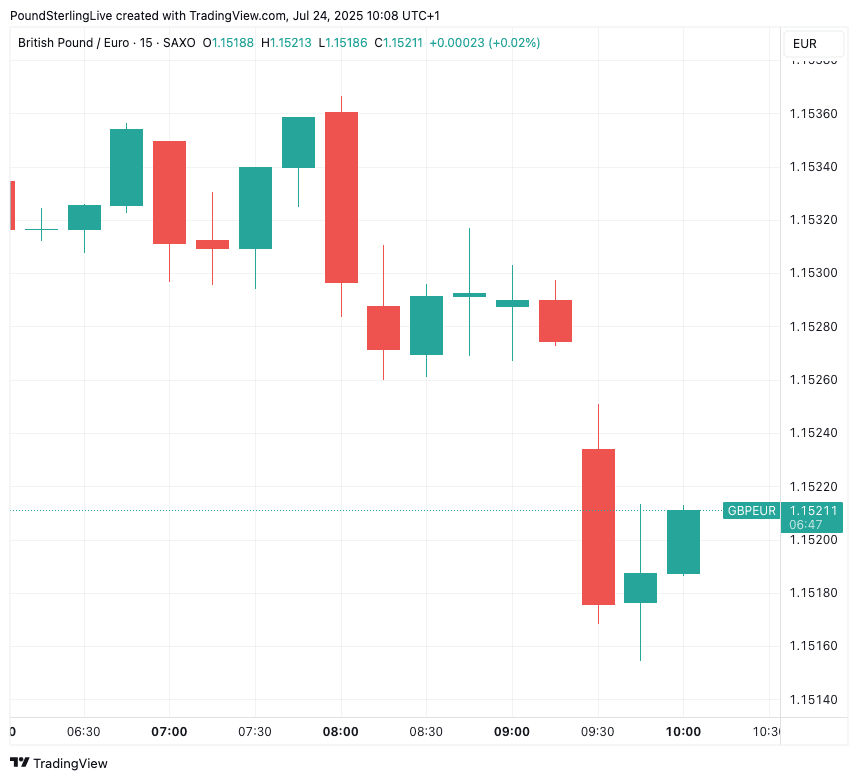
Image © Adobe Images
The UK economy lost momentum in July.
This is according to the flash PMI survey released by S&P Global, where the headline Composite PMI slowed to 51 from 52 in June.
This disappointed against an expectation for a more 51.9 print to be revealed. To be sure, anything above 50 represents expansion, but the hint of slowing momentum is reflected in a weaker Pound Sterling.
The Pound dropped against both the Euro and Dollar following the release, which revealed the latest loss of momentum is due to a decline in new work orders.
The GBP/EUR dipped to 1.1510 as the UK's PMI compared unflaterringly to the Eurozone equivalent which rose to 51, an 11-month high, beating expectations for 50.8.
Although the two match at 51, for FX markets what really matters is how the surprises compare: a positive surprise for the Eurozone is up against the negative surprise for the UK; the result is a weaker GBP/EUR.
The details of the UK's report are where the real alarm bells are ringing:
Staffing numbers decreased at the fastest pace since February. This is the latest evidence that the rise in employment taxes announced by Chancellor Rachel Reeves in the Autumn of 2024, which came into effect in April, are now starting to bite.
"Survey respondents widely commented on the need to reduce headcounts in response to higher payroll costs and subdued customer demand," reported S&P Global.
Chris Williamson, Chief Business Economist at S&P Global Market Intelligence says what is particularly worrying is the sustained impact of the Budget measures on employment. "Higher staffing costs have exacerbated firms’ existing concerns over payroll numbers in the current environment of weak demand, resulting in another month of sharply reduced headcounts in July."
Above: GBP/EUR gapped lower following the UK's PMI release.
The developments imply spare capacity in the economy will expand, lowering inflation and potentially inviting the Bank of England to cut interest rates faster than is currently anticipated.
If the Bank cuts more and faster than the ECB and U.S. Federal Reserve in the coming months, the pound would likely struggle against the euro and dollar.
"The weak growth trajectory and sustained culling of jobs will add to pressure on the Bank of England to cut rates again at its next policy meeting in August. It seems likely that the disappointing growth and labour market trends will increasingly dominate the inflation forecasting narrative, encouraging policymakers to ‘look through’ the recent rise in price pressures and instead focus on helping to revive growth," says Williamson.

